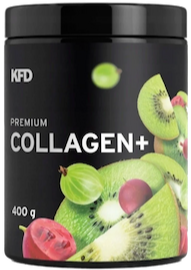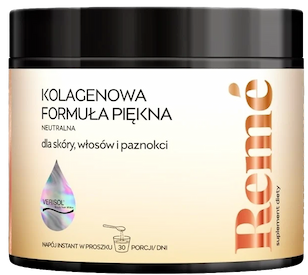Top 10 best collagen supplement products for 2025
The best collagen for your skin, hair, nails face and joints to solidly support their condition.


Learn more about our editorial process
.

Learn more about our editorial process
.

Learn more about our editorial process
.

Learn more about our editorial process
.
Why you can trust us
Articles on Natu.Care are written based on scientific research, data from government websites and other reliable sources. The texts are written in cooperation with doctors, nutritionists and other health and beauty experts. Articles are reviewed before publication and during significant updates.
.Learn more about our editorial process
.Information about advertisements
Content on Natu.Care may contain links to products from the sale of which we may receive a commission. When creating content, we adhere to high editorial standards and take care to be objective about the products discussed. The presence of affiliate links is not dictated by our partners, and we select the products we review ourselves completely independently.
.Learn more about our terms and Conditions
.The best collagen product is one that contains the optimum dose of this protein given in a well-absorbable form. On the surface - a trivial recipe for an effective product. Unfortunately, good collagen products are scarce. In fact, many fashionable products have such a low dose of collagen that they simply cannot work.
This is why we have created the Collagen and Dietary Supplements Association.
That is why we have created this ranking of the best collagens. You'll find products with great formulations, often enriched with additional active ingredients. We have also tried to pay attention to taste and choose collagen products without a fishy aftertaste.
Collagen products with a fishy aftertaste.
From this article you will learn:
- Which collagen is best, .
- What the different types of collagen affect, .
- Whether fish, pork or beef collagen is better, .
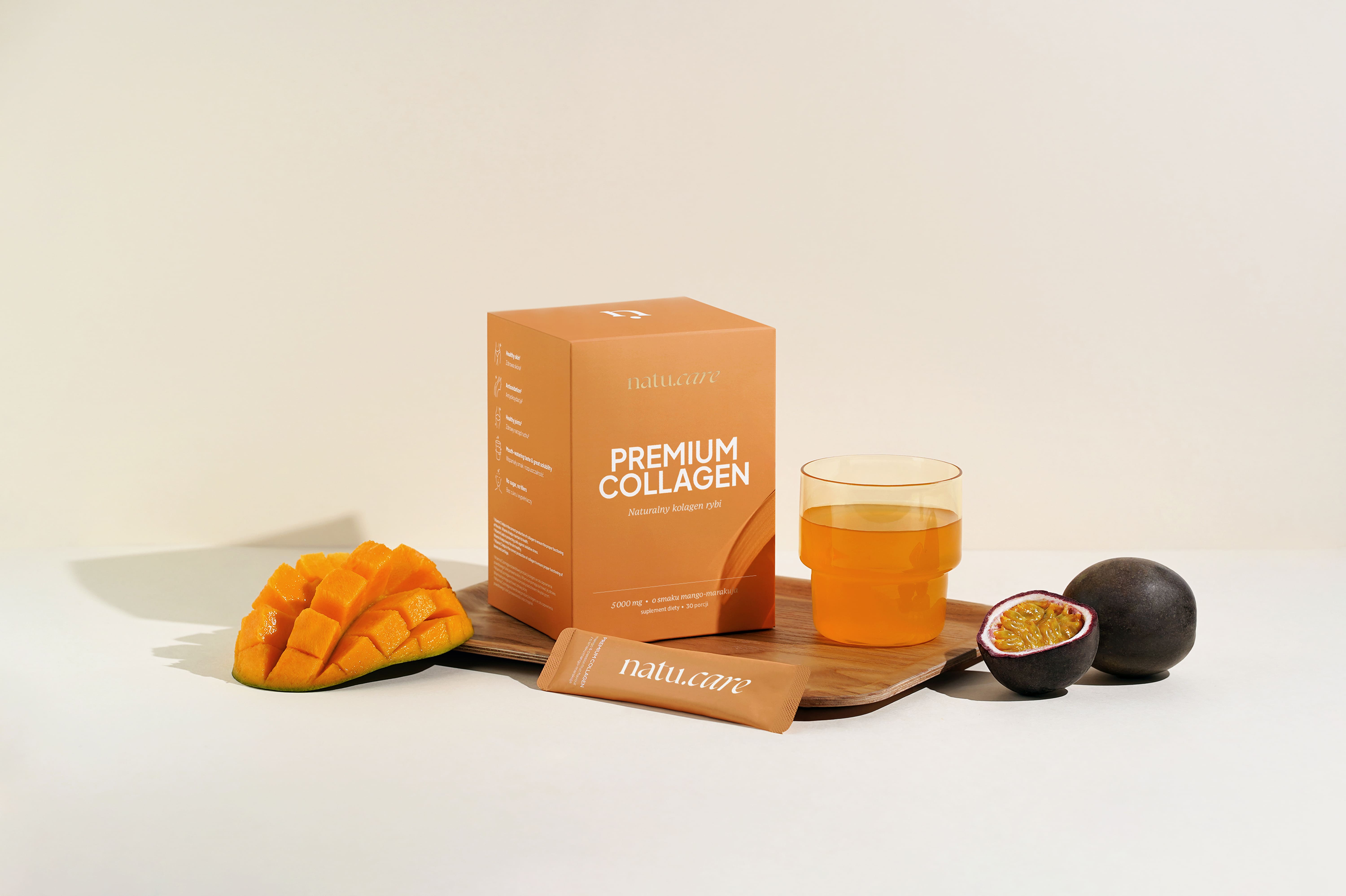
Sprawdź, za co pokochały go tysiące klientek Kolagen Premium 5000 mg, mango-marakuja
Natu.Care Kolagen Premium 5000 mg, mango-marakuja
Natu.Care Kolagen Premium dla zdrowia stawów, skóry, paznokci i włosów. Najlepsza przyswajalność. Optymalna dawka 5 000 lub 10 000 mg. Przebadany przez niezależne laboratorium.
Zobacz więcej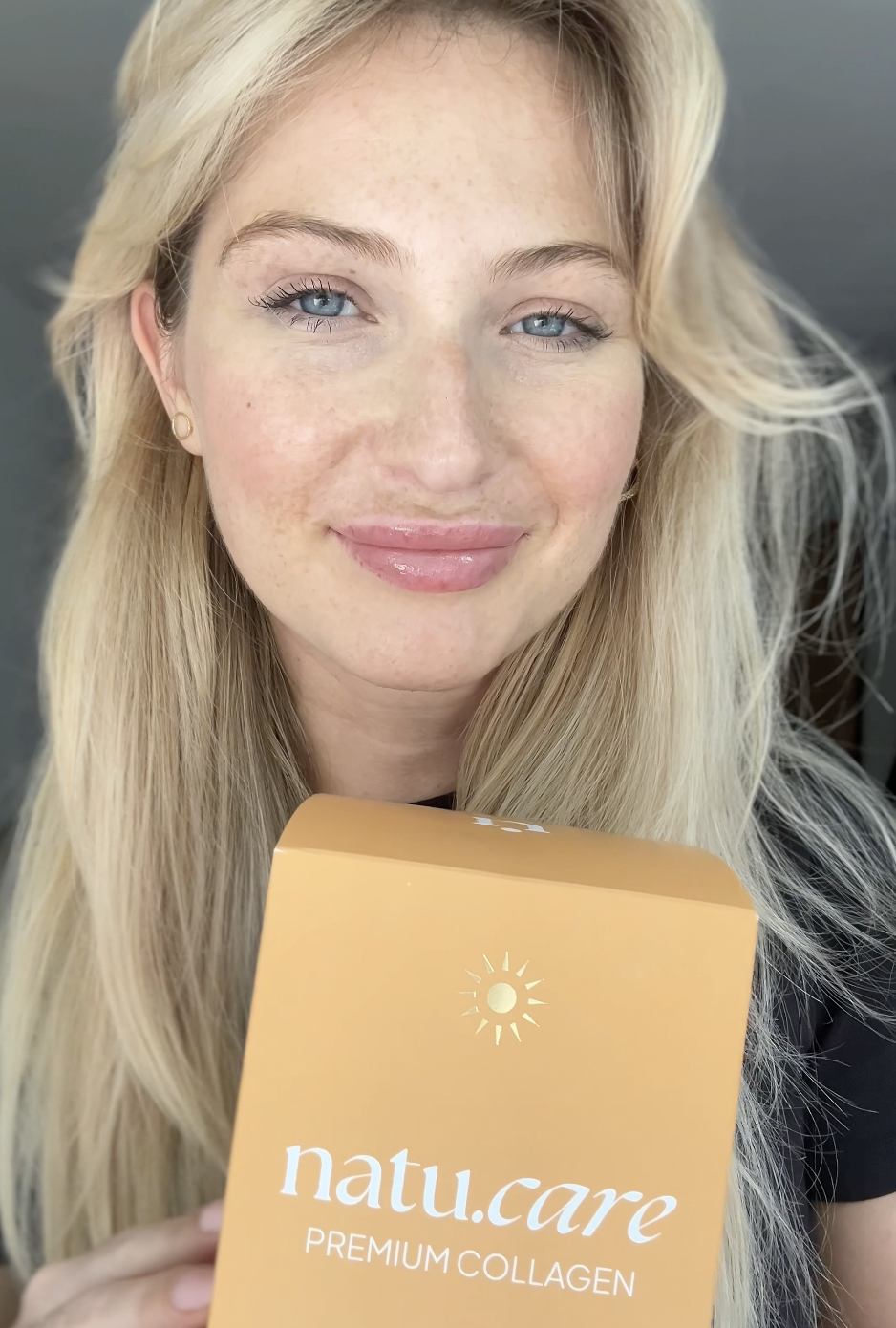
Wybrałam kolagen Natu.Care, ponieważ miał super opinie – a to było dla mnie bardzo ważne! Odkąd go stosuję, moja skóra znacznie się poprawiła i jest nawilżona, a na głowie pojawiły się nowe "baby hair".@Kasia S.
See also:
.
- Facial collagen
- Collagen for the skin
- Collagen for joints
- Collagen for tendons
- Collagen for bones
- Collagen for hair
- Collagen for cellulite
- Collagen for acne
- Collagen for stretch marks
- Collagen for scars
- Collagen for nails
- Collagen to drink andcollagen to drink (effects) .
What is the best collagen?
.
The best collagen is type 1 fish collagen in hydrolysed form. Hydrolysis breaks down the protein into small particles - collagen peptides, which improves bioavailability. Fish collagen is absorbed up to 50% better than beef or pork collagen. A type 1 collagen is the best collagen in the body - it makes up about 90% of all collagen.
Best collagen on the market - ranking
.
In preparing the ranking of the best collagen, we considered certain criteria:
- Collagen content. The dietary supplement must contain no less than 2.5 grams (2,500 mg) of hydrolysed collagen. Otherwise, collagen supplementation may not produce positive results.
- Purity of formulation. A large proportion of supplements contain unnecessary additives called "fillers". It is better to avoid such supplements. .
- Additional active ingredients. While unnecessary additives are a big minus, minerals and vitamins (especially those that support collagen absorption, e.g. vitamin C) are an advantage.
- Research. Laboratory tests performed by independent institutions show whether a product has in its composition what we read on the label. .
- Origin of collagen. Collagen sourced from fish caught in clean, marine waters is the sign of a good supplement.
- Collagen is the sign of a good supplement.
- Form. Collagen applied to the skin (e.g. in the form of a cream) will not have the desired effect. Therefore, below you will only find powder, tablet or drinkable formulations. Here you will see the full criteria. .
Natu.Care Collagen Premium 5000 mg, mango-maracuja

- Collagen content: 5000 mg marine collagen hydrolysate
- .
- Additional active ingredients: vitamin C, low molecular weight hyaluronic acid (and L-theanine and coenzyme Q10 in cocoa flavoured collagen or vitamin A and vitamin E in mango–passion fruit flavoured collagen)
- .
- Form: powder sachets
- .
- Dose: 1 sachet per day
- .
- Sufficient for: 30 days
- .
Product description
Fish collagen from the Natu.Care brand in a dose of 5000 mg. The formula contains a sufficient portion of the active substance to positively affect your joints, musculoskeletal system and immunity.
Take care of your tendons, joint cartilage, ligaments, muscles and even bones by supplying them with the building blocks to function properly. Move without bólu and provide the necessary support for any physical activity.
And as a „gratis” to regular supplementation, you will also receive firm skinóhand, healthy and shiny hair and strong nails.
Natu.Care Premium Collagen is available in two flavours – Cacao Bloom and Rise&Shine. Both formulas are based on the following active ingredients: marine collagen hydrolysate, wild roseóbud extract and hyaluronic acid.
Additionally, Cacao Bloom contains natural L-theanine, coenzyme Q10 and defatted Dutch cacao. Rise&Shine instead contains vitamin E and vitamin A.
These are the best collagens in the world.
These best fish collagens on the market also rós taste – Cacao Bloom is a treat for chocolate lovers. Rise&Shine will appeal to those whoóenjoy the refreshing taste of mangoófruit and passion fruit.
Pros and cons
Fish collagen from the Natu.Care brand in a dose of 5000 mg. The formula contains a sufficient portion of the active substance to positively affect your joints, musculoskeletal system and immunity.
Take care of your tendons, joint cartilage, ligaments, muscles and even bones by supplying them with the building blocks to function properly. Move without bólu and provide the necessary support for any physical activity.
And as a „gratis” to regular supplementation, you will also receive firm skinóhand, healthy and shiny hair and strong nails.
Natu.Care Premium Collagen is available in two flavours – Cacao Bloom and Rise&Shine. Both formulas are based on the following active ingredients: marine collagen hydrolysate, wild roseóbud extract and hyaluronic acid.
Additionally, Cacao Bloom contains natural L-theanine, coenzyme Q10 and defatted Dutch cacao. Rise&Shine instead contains vitamin E and vitamin A.
These are the best collagens in the world.
These best fish collagens on the market also rós taste – Cacao Bloom is a treat for chocolate lovers. Rise&Shine will appeal to those whoóenjoy the refreshing taste of mangoófruit and passion fruit.
Additional information
Fish collagen from the Natu.Care brand in a dose of 5000 mg. The formula contains a sufficient portion of the active substance to positively affect your joints, musculoskeletal system and immunity.
Take care of your tendons, joint cartilage, ligaments, muscles and even bones by supplying them with the building blocks to function properly. Move without bólu and provide the necessary support for any physical activity.
And as a „gratis” to regular supplementation, you will also receive firm skinóhand, healthy and shiny hair and strong nails.
Natu.Care Premium Collagen is available in two flavours – Cacao Bloom and Rise&Shine. Both formulas are based on the following active ingredients: marine collagen hydrolysate, wild roseóbud extract and hyaluronic acid.
Additionally, Cacao Bloom contains natural L-theanine, coenzyme Q10 and defatted Dutch cacao. Rise&Shine instead contains vitamin E and vitamin A.
These are the best collagens in the world.
These best fish collagens on the market also rós taste – Cacao Bloom is a treat for chocolate lovers. Rise&Shine will appeal to those whoóenjoy the refreshing taste of mangoófruit and passion fruit.
User review
Fish collagen from the Natu.Care brand in a dose of 5000 mg. The formula contains a sufficient portion of the active substance to positively affect your joints, musculoskeletal system and immunity.
Take care of your tendons, joint cartilage, ligaments, muscles and even bones by supplying them with the building blocks to function properly. Move without bólu and provide the necessary support for any physical activity.
And as a „gratis” to regular supplementation, you will also receive firm skinóhand, healthy and shiny hair and strong nails.
Natu.Care Premium Collagen is available in two flavours – Cacao Bloom and Rise&Shine. Both formulas are based on the following active ingredients: marine collagen hydrolysate, wild roseóbud extract and hyaluronic acid.
Additionally, Cacao Bloom contains natural L-theanine, coenzyme Q10 and defatted Dutch cacao. Rise&Shine instead contains vitamin E and vitamin A.
These are the best collagens in the world.
These best fish collagens on the market also rós taste – Cacao Bloom is a treat for chocolate lovers. Rise&Shine will appeal to those whoóenjoy the refreshing taste of mangoófruit and passion fruit.
Natu.Care Collagen Premium 10000 mg, cherry

- Collagen content: 10,000 mg of hydrolyzed bovine collagen
- Additional active ingredients: vitamin C, low molecular weight hyaluronic acid, glucosamine, chondroitin, extract of Indian frankincense resin (boswellia serrata)
- Form: powder sachets for drinking
- Serving: 1 sachet per day
- Lasts for: 30 days
Product description
One of the strongest collagens on the market, providing as much as 10,000 mg per daily serving. This product can effectively support the condition of joints, skin, hair, and nails.
With this supplement, you will support your skeletal and joint system as well as your beauty, helping you visually halt the aging process and feel rejuvenated!
Pros and cons
Pros:
- The daily portion of collagen is very large – as much as 10,000 mg.
- Proven collagen formula – COLLinstant, whose effectiveness has been confirmed in clinical studies.
- Effective dose of hyaluronic acid, which additionally moisturizes the skin and positively affects joint health.
- Vitamin C supports the body's natural collagen production.
- Glucosamine is a fundamental building block of compounds found in joint cartilage and a component of collagen that gives elasticity to connective tissue in tendons.
- Chondroitin is a natural component found in the human body, mainly in cartilage. This large molecule (mucopolysaccharide) has the ability to absorb water, which helps maintain the elasticity and resilience of cartilage.
- Frankincense resin extract supports blood circulation and joint mobility and reduces their stiffness. It may help alleviate inflammatory conditions.
- The composition has been tested by the independent and accredited J.S. Hamilton laboratory.
Cons:
- None.
Additional information
Users praise Natu.Care Collagen Premium for the easy dissolving of the powder.
ALLDEYNN Collarose Fish
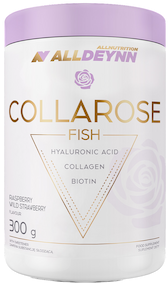
- Collagen content: 5000 mg hydrolysate fish collagen VERISOL F® .
- Additional active ingredients: vitamin C, hyaluronic acid, biotin
- Form: powder to dissolve in water .
- Dose: one scoop (6 g) of powder daily .
- Sufficient for: 50 days .
Product description
Atlantic cod collagen VERISOL F® contained in the formula are easily absorbed collagen peptides of fish origin. Regular supplementation can firm your skinóhand and slow down the ageing process. Your nails will become stronger and stop breaking. The addition of biotin will improve the condition of your hairów. The collagen portion is high enough to also have a good effect on your joints, muscles and bones.
Pros and cons
Atlantic cod collagen VERISOL F® contained in the formula are easily absorbed collagen peptides of fish origin. Regular supplementation can firm your skinóhand and slow down the ageing process. Your nails will become stronger and stop breaking. The addition of biotin will improve the condition of your hairów. The collagen portion is high enough to also have a good effect on your joints, muscles and bones.
Additional information
Atlantic cod collagen VERISOL F® contained in the formula are easily absorbed collagen peptides of fish origin. Regular supplementation can firm your skinóhand and slow down the ageing process. Your nails will become stronger and stop breaking. The addition of biotin will improve the condition of your hairów. The collagen portion is high enough to also have a good effect on your joints, muscles and bones.
Expert and user opinion
Atlantic cod collagen VERISOL F® contained in the formula are easily absorbed collagen peptides of fish origin. Regular supplementation can firm your skinóhand and slow down the ageing process. Your nails will become stronger and stop breaking. The addition of biotin will improve the condition of your hairów. The collagen portion is high enough to also have a good effect on your joints, muscles and bones.
DuoLife Collagen fish collagen 2500 mg
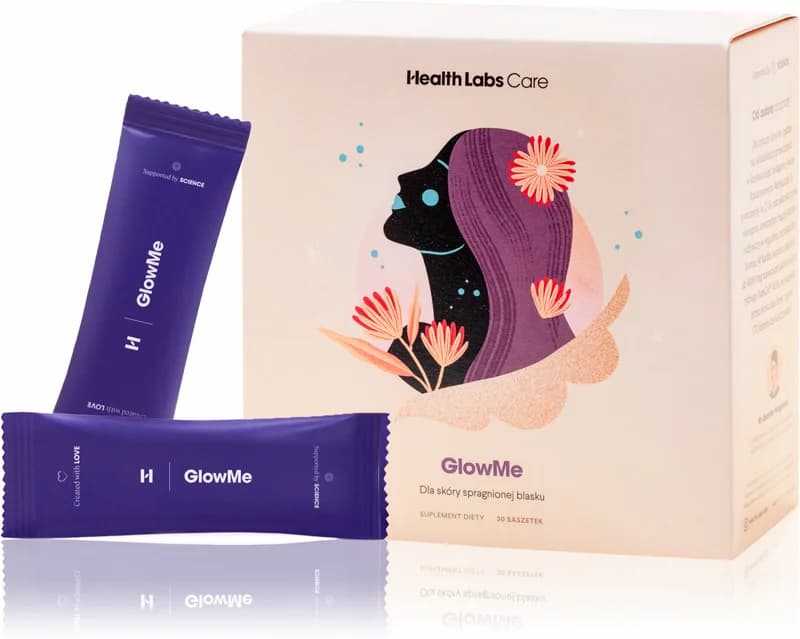
- Collagen content: 2500 mg collagen
- Additional active ingredients: vitamin C, silicon, glucosamine, hyaluronic acid, nettle and bamboo extracts
- Form: liquid to drink .
- Dose:25 ml .
- Sufficient for: 30 days .
Product description
100% natural collagen liquid without unnecessary ingredientsós. The composition of ingredientsós improves the appearance and condition of skinóry, hairów, nails. DuoLife is a good choiceór if you notice the first signs of skinóry ageing or want to stop this process. A tasty liquid, convenient to use.
Pros and cons
100% natural collagen liquid without unnecessary ingredientsós. The composition of ingredientsós improves the appearance and condition of skinóry, hairów, nails. DuoLife is a good choiceór if you notice the first signs of skinóry ageing or want to stop this process. A tasty liquid, convenient to use.
Additional information
100% natural collagen liquid without unnecessary ingredientsós. The composition of ingredientsós improves the appearance and condition of skinóry, hairów, nails. DuoLife is a good choiceór if you notice the first signs of skinóry ageing or want to stop this process. A tasty liquid, convenient to use.
User review
100% natural collagen liquid without unnecessary ingredientsós. The composition of ingredientsós improves the appearance and condition of skinóry, hairów, nails. DuoLife is a good choiceór if you notice the first signs of skinóry ageing or want to stop this process. A tasty liquid, convenient to use.
Pharmovit liquid collagen 10000 mg
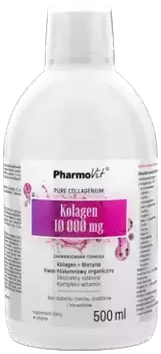
- Collagen content: 10000 mg hydrolysed bovine collagen types I and III .
- Additional active ingredients: hyaluronic acid, natural plant extracts, vitamin C, B vitamins, zinc, vitamin D
- Form: vials .
- Dose: 25 ml .
- Sufficient for: 20 days .
Product description
A solid daily dose of collagen for jointómuscle and bone health and beauty. The duo of collagen and vitamin C has a positive effect on each other, so that „the protein of youth” is better absorbed and more efficiently produced in the body.
Pros and cons
A solid daily dose of collagen for jointómuscle and bone health and beauty. The duo of collagen and vitamin C has a positive effect on each other, so that „the protein of youth” is better absorbed and more efficiently produced in the body.
Additional information
A solid daily dose of collagen for jointómuscle and bone health and beauty. The duo of collagen and vitamin C has a positive effect on each other, so that „the protein of youth” is better absorbed and more efficiently produced in the body.
KFD Premium Collagen+
Product description
High dose of collagen and a real bomb of vitamins C and D and organic sulphur. With this preparation the effects will come immediately. You will improve the firmness of your skin and reduce wrinkles. Your hair and nails will be strong and shiny.
A generous dose of collagen will improve the mobility of your jointsós, benefit your bone system and muscles. Do you do sports and need a product thatós able to keep up with your needs? This product will do the trick.
Pros and cons
High dose of collagen and a real bomb of vitamins C and D and organic sulphur. With this preparation the effects will come immediately. You will improve the firmness of your skin and reduce wrinkles. Your hair and nails will be strong and shiny.
A generous dose of collagen will improve the mobility of your jointsós, benefit your bone system and muscles. Do you do sports and need a product thatós able to keep up with your needs? This product will do the trick.
Additional information
High dose of collagen and a real bomb of vitamins C and D and organic sulphur. With this preparation the effects will come immediately. You will improve the firmness of your skin and reduce wrinkles. Your hair and nails will be strong and shiny.
A generous dose of collagen will improve the mobility of your jointsós, benefit your bone system and muscles. Do you do sports and need a product thatós able to keep up with your needs? This product will do the trick.
Expert opinion
High dose of collagen and a real bomb of vitamins C and D and organic sulphur. With this preparation the effects will come immediately. You will improve the firmness of your skin and reduce wrinkles. Your hair and nails will be strong and shiny.
A generous dose of collagen will improve the mobility of your jointsós, benefit your bone system and muscles. Do you do sports and need a product thatós able to keep up with your needs? This product will do the trick.
Product description
The dietary supplement from Remé contains beef collagen in a patented formula and vitamin C, whichóra aids its absorption. The formula comes in three flavours: neutral, orange-maracuja and strawberry-pomegranate. The formula can effectively support and improve the condition of the skinóry, hairóry and nails.
Pros and cons
The dietary supplement from Remé contains beef collagen in a patented formula and vitamin C, whichóra aids its absorption. The formula comes in three flavours: neutral, orange-maracuja and strawberry-pomegranate. The formula can effectively support and improve the condition of the skinóry, hairóry and nails.
Additional information
The dietary supplement from Remé contains beef collagen in a patented formula and vitamin C, whichóra aids its absorption. The formula comes in three flavours: neutral, orange-maracuja and strawberry-pomegranate. The formula can effectively support and improve the condition of the skinóry, hairóry and nails.
The dietary supplement from Remé contains beef collagen in a patented formula and vitamin C, whichóra aids its absorption. The formula comes in three flavours: neutral, orange-maracuja and strawberry-pomegranate. The formula can effectively support and improve the condition of the skinóry, hairóry and nails.
See also:
.
- What collagen to choose .
- The best absorbable collagen
- Drinkable collagen
- Liquid collagen
- Fish collagen for drinking
- Fish collagen powder
- Collagen shot
- Collagen in sachets
- Collagen in tablets
- Collagen powder
- Hyaluronic acid collagen
- Lyophilised collagen
- Collagen hydrolysate
- Collagen with vitamin C
- Norwegian collagen
What are the different types of collagen best for?
.
When we talk about 'the best collagen', we obviously mean products that contain a high dose of collagen in a well absorbed form. But collagen has more than one name. And in fact - not one type.
.
There are at least 20 types of collagenand. All are important to us and all support other parts of our body. The key five types of collagen are:
- Collagen type I. This is the most important collagen in the human body. It is most abundant in the body and is responsible for skin, tendons, ligaments, bones, hair and nails. It is an ingredient in most collagen supplements.
- Type II collagen. It primarily supports cartilage tissue as well as bones. It is recommended for people who have problems with joint pain, as type II collagen counteracts osteoarthritis, among other things. It is the best collagen for joints.
- Collagen type III. This is the second most essential collagen in the body. It accounts for 5 to as much as 20 per cent of the total youth protein in the body. It most often works together with type I collagen and is responsible for blood vessels. .
- Collagen type V. It is crucial in the formation of fibrils. It is also responsible for the formation of the cornea, liver, lungs and bone matrix. It supports the condition of hair and eye health.
- Collagen type X. It is mainly found in cartilage (similar to type II). However, it is also a bone builder, so a deficiency leads to joint and cartilage problems.
In most collagen supplements you will find type I collagen (sometimes combined with III). Unfortunately, a large proportion of the manufacturers of these preprimary products do not indicate both the origin and the type of collagen used. This can often be an indication of the low quality of the protein used.
.
If you want to learn more about the different types of collagen and exactly how they affect your body's health, read: Best collagen: which type for skin, which for joints, which for hair
.Hydrolysed vs freeze-dried collagen - what's the difference?
.
Lyophilised collagen is collagen from which water has been evaporated through a freeze-drying process. This will make it lighter, so you can fit more of it in a capsuleand. In contrast, hydrolysed collagen is broken down into smaller peptides, which makes it better absorbedand.
Which is better? Master of Pharmacy, Ilona Krzak answers: "It is difficult to say which collagen is better. There are still no studies that adequately compare the two types of youth protein. However, I believe that it is hydrolysed collagen that is more beneficial for us, as it is better absorbed."

Sprawdź, za co pokochały go tysiące klientek Kolagen Premium 5000 mg, mango-marakuja
Natu.Care Kolagen Premium 5000 mg, mango-marakuja
Natu.Care Kolagen Premium dla zdrowia stawów, skóry, paznokci i włosów. Najlepsza przyswajalność. Optymalna dawka 5 000 lub 10 000 mg. Przebadany przez niezależne laboratorium.
Zobacz więcej
Wybrałam kolagen Natu.Care, ponieważ miał super opinie – a to było dla mnie bardzo ważne! Odkąd go stosuję, moja skóra znacznie się poprawiła i jest nawilżona, a na głowie pojawiły się nowe "baby hair".@Kasia S.
See also:
.
- How to supplement collagen .
- What destroys collagen in the body
- Collagen for skin, hair, nails
- Collagen excess
- Collagen for horses for humans: a doctor's opinion
Summary
.
- The best collagens available on the market are Cacao Bloom and Rise&Shine.
- Type I collagen is best for hair and skin.
- Collagen is best for hair and skin.
- Type II collagen is recommended for people who have joint problems. .
- Type X collagen supports bone health. .
FAQ
.Which collagen is better - fish or bovine collagen?
.Fish collagen (from marine collagen) is superior to bovine collagen. Studies suggest that it is absorbed up to 1.5 times faster into the body. This is due to the smaller particle size compared to beef collagen. However, watch out for possible allergies to fish or seafood.
What is the healthiest collagen?
.The healthiest collagen is fish collagen. It has a better bioavailability than pork or beef collagen. Furthermore, supplementation with pig or beef collagen, is associated with a risk of contracting animal-borne diseases.
What not to combine with collagen.
There is no research to suggest that collagen for women or men can react with other drugs or supplements. However, if you want to make sure your supplementation is safe, tell your doctor about the medications you are taking and ask if they react with collagen supplements.
What company of collagen do you recommend?
.The best collagens contain 5-10 grams of youth protein and valuable active ingredients (e.g. vitamin C). The most common are hydrolysed collagens of marine origin. Here are some of them: Natu.Care premium collagen, Colladrop Flex, Sundose collagen, or Colladrop Forte.
.After how long does it take to see the effects of drinking collagen?
.First effects of drinking collagen you will notice after about 8-24 weeks. Keep in mind, however, that everyone is different, so for some people the effects will appear sooner, while for others you will have to wait longer.
Is drinkable collagen better than tablet collagen?
.Most often, drinking collagen is distinguished by its higher dose of active ingredient than formulations in tablets. What's more, hydrolysed collagen is better absorbed than other forms of the youth protein. If you're looking for good collagen to drink, check out these products: Natu.Care premium collagen, Colladrop Flex, Sundose collagen, or Colladrop Forte.
What are the symptoms of collagen deprivation?
.The first symptoms of a lack of collagen in the body can be noticed as early as 25-30 years of age. These include:
- dermal problems, .
- painful joints, .
- broken nails, .
- dry and dull hair, .
- worse immunity, .
- disordered appetite, .
Factors that destroy collagen in the body are primarily age, diet, stimulants, excess sun. If you are seeing symptoms that may suggest reduced collagen levels in your body, consider collagen supplementation. Here are the most powerful collagens: Natu.Care premium collagen, Colladrop Flex, Sundose collagen, or Colladrop Forte.
.
Resources
.See all
.Benisek, N. by A. (n.d.). What Is Marine Collagen? WebMD. Retrieved February 23, 2023, from https://www.webmd.com/beauty/marine-collagen
Bovine Collagen vs Marine Collagen. (n.d.). Retrieved February 23, 2023, from https://www.justvitamins.co.uk/blog/bovine-collagen-vs-marine-collagen/
Collagen Type 10-An overview | ScienceDirect Topics. (n.d.). Retrieved February 23, 2023, from https://www.sciencedirect.com/topics/medicine-and-dentistry/collagen-type-10
COLLAGEN TYPE II (NATIVE): Overview, Uses, Side Effects, Precautions, Interactions, Dosing and Reviews. (n.d.). Retrieved February 23, 2023, from https://www.webmd.com/vitamins/ai/ingredientmono-714/collagen-type-ii-native
Morgan Pfiffner, M. S. (2022). Type-II Collagen Research Analysis. https://examine.com/supplements/type-ii-collagen/
Shoulders, M. D., & Raines, R. T. (2009). Collagen Structure and Stability. Annual Review of Biochemistry, 78(1), 929-958. https://doi.org/10.1146/annurev.biochem.77.032207.120833
Significant Amounts of Functional Collagen Peptides Can Be Incorporated in the Diet While Maintaining Indispensable Amino Acid Balance-PubMed. (n.d.). Retrieved February 23, 2023, from https://pubmed.ncbi.nlm.nih.gov/31096622/
Type I Collagen-An overview | ScienceDirect Topics. (n.d.). Retrieved February 23, 2023, from https://www.sciencedirect.com/topics/biochemistry-genetics-and-molecular-biology/type-i-collagen
Type-V Collagen-An overview | ScienceDirect Topics. (n.d.). Retrieved February 23, 2023, from https://www.sciencedirect.com/topics/biochemistry-genetics-and-molecular-biology/type-v-collagen
Jelonek, L. (2023). Collagen. Everything you need to know (B. Turczynski, ed.; 1st ed.). Natu.Care. https://books.google.com/books?vid=9788396887801
..
Editorials
Meet the team


Editor
Graduate of Journalism and Artes Liberales at the University of Warsaw. Since 2017, he has been working with the biggest portals in Poland and abroad as an editor. Previously worked for 3 years in one of the leading pharmaceutical companies - he knows the health and beauty industry inside out. In his free time, he most enjoys playing tennis or skiing.
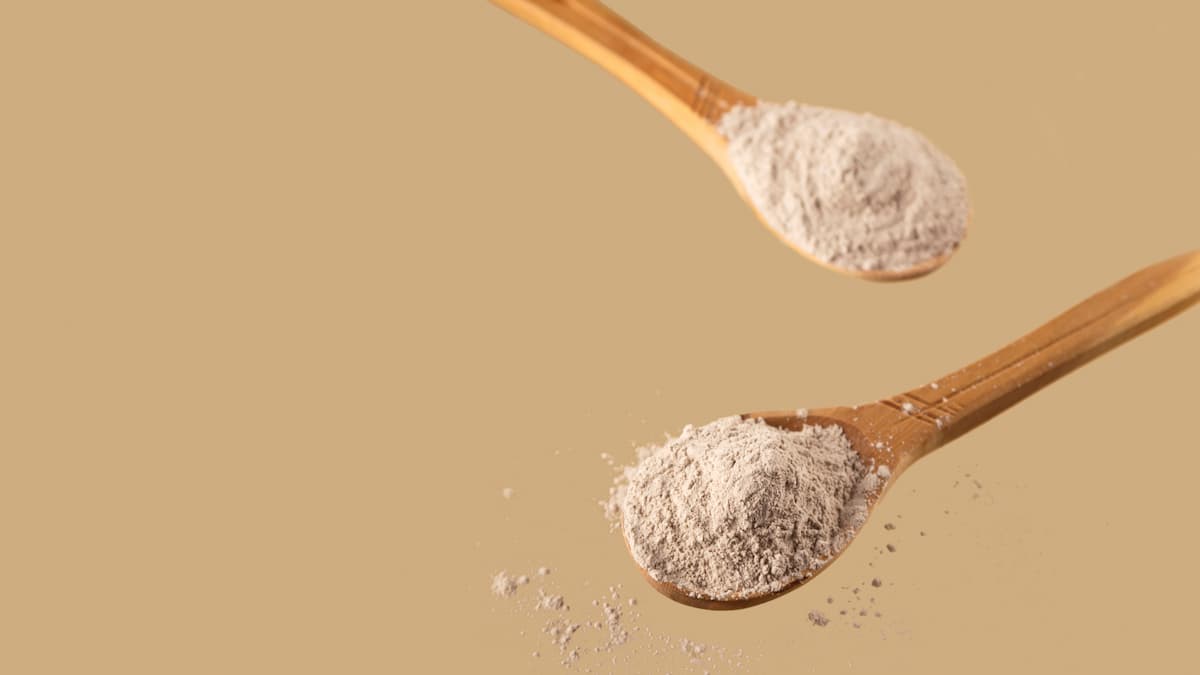
Everything you want to know about COLLinstant collagen.

Collibre collagen is an interesting supplement in shot form.
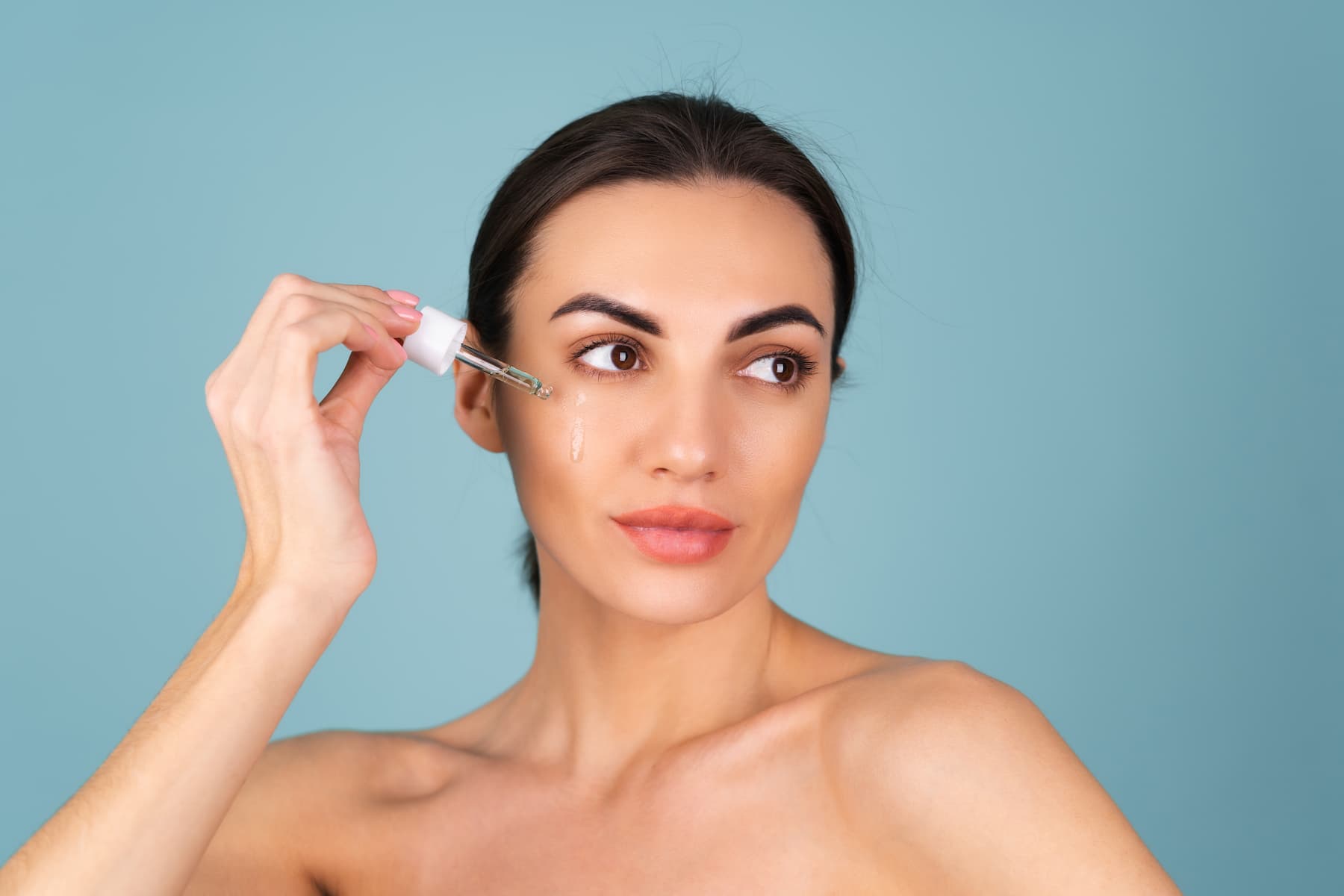
Solgar collagen with hyaluronic acid is a dietary supplement that supports skin and joint health.
